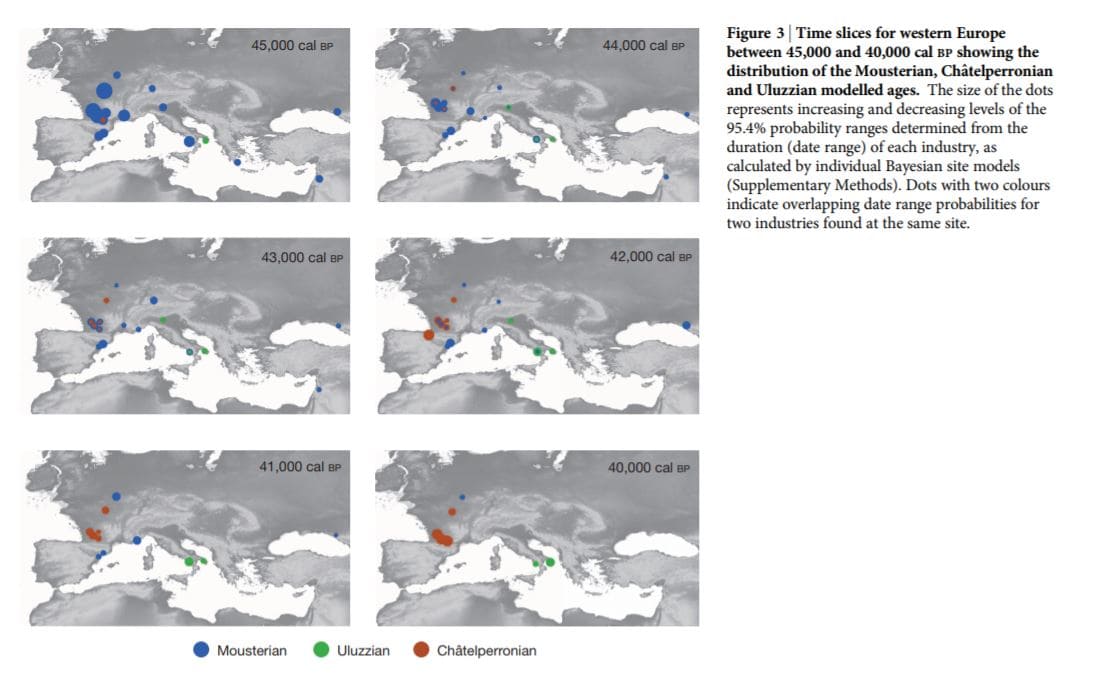It is widely accepted that Neandertals were the only humans present in Europe during the Middle Paleolithic (300,000 to 40,000 years ago). Neandertals made flake-based, and sometimes blade-based, stone tools and hunted primarily large ungulates (hoofed animals, such as horses, bison, reindeer and red deer). In Middle Paleolithic sites, bone tools and items of personal adornment (e.g., necklaces) are rare in comparison to assemblages dated to the Upper Paleolithic (40,000 to 10,000 years ago).

Geographical Distribution of Mousterian and Châtelperronian sites (Higham et al. 2014)
In contrast to this general consensus, there is still considerable debate concerning the biological and cultural changes that took place during the transition from the Middle Paleolithic to the Upper Paleolithic.
In order to shed light on some of these controversies an extensive research program was undertaken examining four key archaeological sites: Saint-Césaire, Gatzarria and Le Piage in France and Crvena Stijena in Montenegro.
For more information:
The timing and spatiotemporal patterning of Neanderthal disappearance

